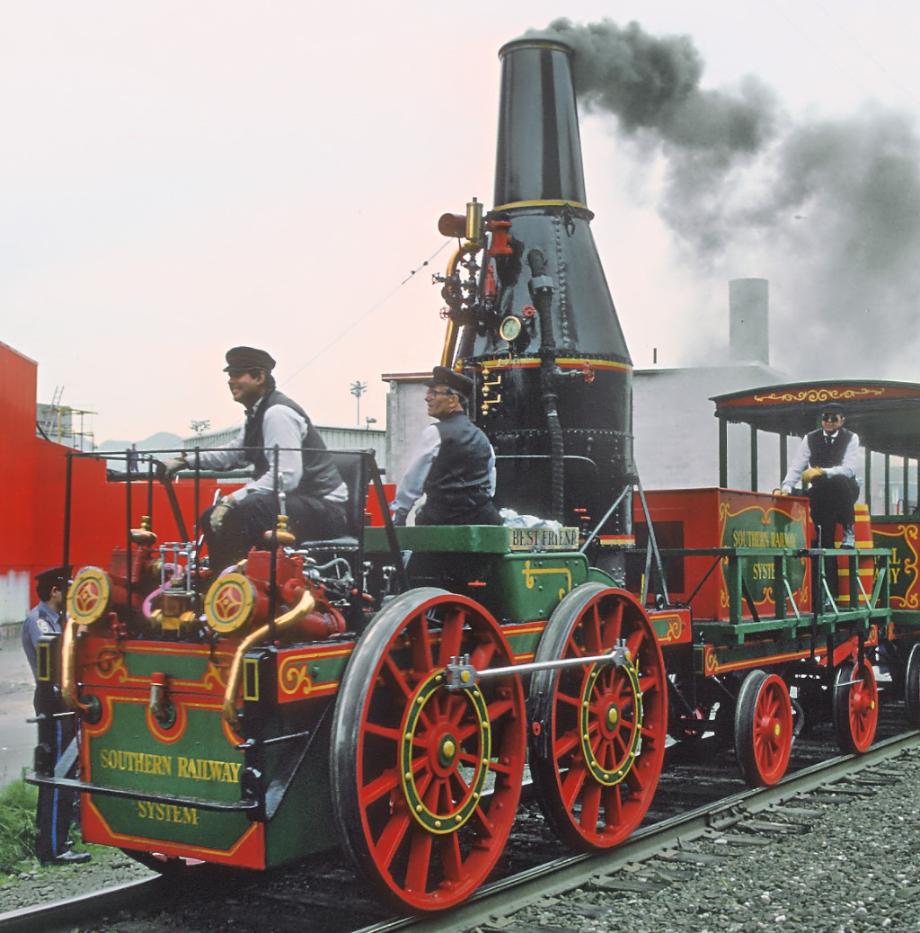0-4-0 'Best Friend of Charleston' Profile and Models

A replica of the original locomotive at the World Exposition on Transport & Communication, Vancouver, Canada in 1986. ©Roger Puta
|
The Best Friend of Charleston was a steam-powered railroad locomotive widely considered the first locomotive to be built entirely within the United States for revenue service. It produced the first locomotive boiler explosion in the United States. The locomotive was built for the South Carolina Canal and Rail Road Company by the West Point Foundry of New York in 1830. Disassembled for shipment by boat to Charleston, South Carolina, it arrived in October of that year and was unofficially named The Best Friend of Charleston. After its inaugural run on Christmas Day, it was used in regular passenger service along a six-mile (9.7 km) demonstration route in Charleston. At the time, it was considered one of the fastest modes of transport, taking its passengers "on the wings of wind at the speed of fifteen to twenty-five miles per hour. On June 17, 1831, the Best Friend was the first locomotive in the US to suffer a boiler explosion. The blast is said to have been caused by the fireman tying down the steam pressure release valve; he had grown tired of hearing it whistle, so to stop the noise he closed the valve permanently. Today, an operable replica of the locomotive is in the hands of the Charleston, SC Chapter, National Railway Historical Society. Another full-size replica is on exhibit at the South Carolina State Museum, in Columbia, South Carolina. |
|
|
Type of Locomotive |
Steam |
|
Builder |
West Point Foundry |
|
Build Date |
1830 |
|
Total Built |
1 |
|
Top Speed |
Reportedly 15 to 20mph |
|
Tractive Effort |
Unknown |
|
Wheel Configuration |
0-4-0 |
|
Operated By |
South Carolina Canal & Railroad Company |
|
Main Duties |
Passenger Transport |
|
In Service Until |
1831 |
|
Surviving Examples |
0 (Replicas Exist) |

